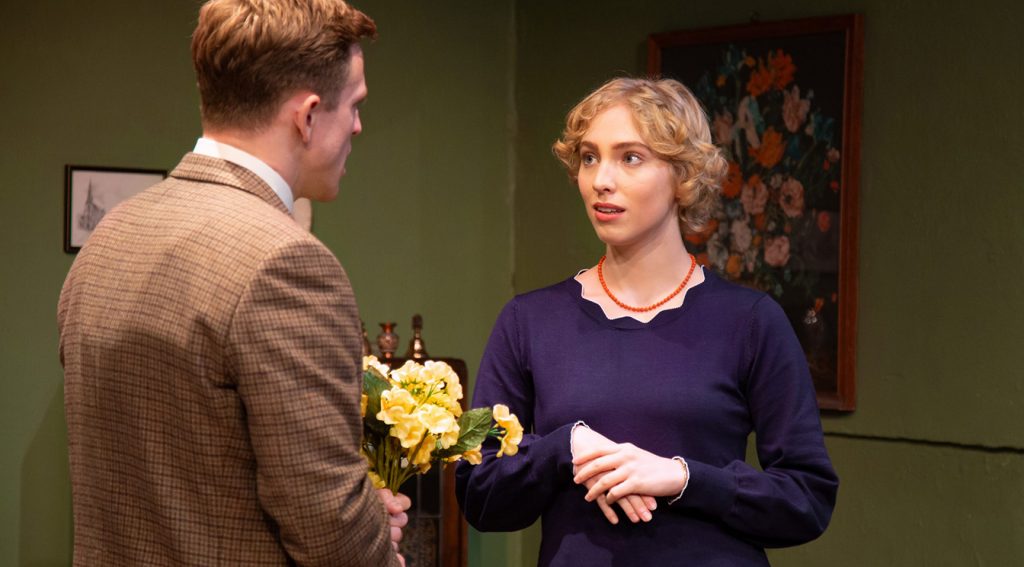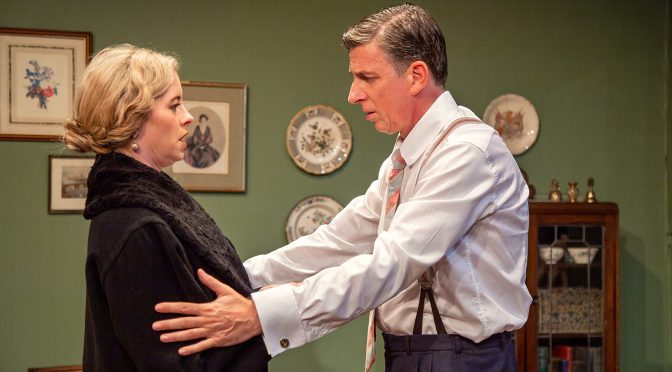As fans of London’s fringe theatre know, productions at the Finborough balance new writing with rediscovered classics. The venue hit the jackpot for the former earlier this year with Sophie Swithinbank’s Bacon. Now it’s the turn of the latter: a hit play from 1926 by another female writer, Kate O’Brien, that is thoroughly admirable.
“Refined” is the key word – that’s what proud housewife Mabel wants her home, the property that gives the play its title, to be. But all of O’Brien’s six characters suffer as respectability conflicts with happiness; they are tormented in sophisticated detail by unsuitable relationships and social mores.
O’Brien was breaking ground with her subject matter – looking at suburbanites and “the secret life at home”. The play tackles sex and mental health in what was considered an advanced fashion. Of course, it can’t shock now, but it’s impressively thorough. And there’s a fine sense of rage bubbling under the sophisticated surface.
If someone wrote a period show with this many stiff upper lips (let alone some of the dialogue) today, it would beggar belief. It’s frankly a struggle – you want to shake most of the characters at some point – but O’Brien was there. She is the source material! Her writing makes sure that the repression becomes oppressive.

Unfortunately, it is too easy to tell that O’Brien was primarily a novelist. While the plot creates tension, Distinguished Villa is woefully static. Director Hugh Fraser is wise not to try and fight this. The series of scenes, with plodding combinations of characters, is predictable. But the play doesn’t drag and most of what is said is interesting. The scenes themselves are tightly written – there’s an especially strong one for Tessa Bonham Jones, who plays the youngest character and has a stunning moment in the spotlight.
O’Brien seems to miss omniscient narration too much. But it’s easy to enjoy the performances on offer here – again, refined describes them. Mia Austen shows great intelligence as Mabel, combining comic appeal while respecting the character’s arguments and showing her troubles. Matthew Ashforde gives a moving performance as her depressed husband, revealing that the role’s unbelievable timidity stems from deeper problems.
If both leads, and the pivotal role of the ever-observing upper-class lodger Ms Llewellyn (played with great skill by Holly Sumpton), are sometimes flat, the cast makes the most of them. Similarly, Simon Haines and Brian Martin, whose roles are really only about who they may or may not marry, do a great job. Beautifully crafted under Fraser’s tutelage, these are all wonderful studies. But, despite all the detail, I struggled to thoroughly believe in any of characters.
The result of the cast’s fine work is a production full of class. Which is appropriate, as O’Brien’s eye on social status is fascinating. And Carla Evans’ costumes deserve a special mention for accuracy (they are lovely, but this isn’t high fashion as much as home-made derivations). Distinguished Villa is a play more interesting than moving, one to respect more than love. But the chance to see such top-notch craft shouldn’t be missed.
Until 1 October 2022
Photos by Carla Evans



